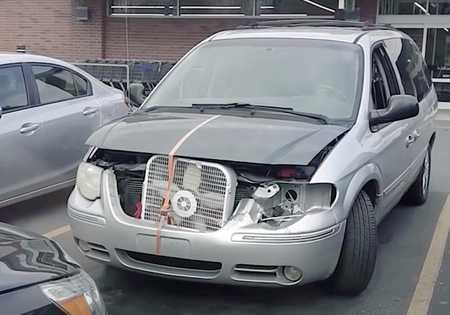Common Car Problems and Issues
Cars Friday, December 30, 2022
Breakdown of some common car problems:

- Dead battery: A dead battery can be caused by a variety of factors, including:
- Leaving the lights or other electrical components on when the car is not in use
- Not starting the car regularly, which can cause the battery to discharge over time
- A faulty battery that is no longer able to hold a charge
- To prevent a dead battery, make sure to turn off electrical components when the car is not in use, start the car regularly, and have the battery checked and replaced if necessary.
- Flat tire: Flat tires can be caused by a variety of factors, including:
- Driving over sharp objects, such as nails or broken glass, which can puncture the tire
- Underinflated tires, which can cause the tire to wear unevenly and potentially fail
- Worn tread, which can make it more difficult for the tire to grip the road and can lead to a blowout
- To prevent flat tires, make sure to check the tire pressure regularly, avoid driving over sharp objects, and have the tires inspected and replaced if necessary.
- Engine problems: Engine problems can be caused by a variety of factors, including:
- A faulty spark plug, which can prevent the engine from starting or cause it to run poorly
- A worn timing belt, which can cause the engine to stop running or suffer damage if it breaks
- Low engine oil, which can cause the engine to seize or suffer damage due to lack of lubrication
- To prevent engine problems, make sure to regularly check and replace the spark plugs, have the timing belt inspected and replaced according to the manufacturer's recommendations, and check and replace the engine oil as needed.
- Overheating: Overheating can be caused by a variety of factors, including:
- A faulty radiator, which can prevent the coolant from circulating properly and cause the engine to overheat
- Low coolant levels, which can cause the engine to overheat if there is not enough fluid to dissipate heat
- A damaged water pump, which can prevent the coolant from circulating properly and cause the engine to overheat
- To prevent overheating, make sure to check the coolant level regularly, have the radiator and water pump inspected and replaced if necessary, and follow the manufacturer's recommendations for replacing the coolant.
- Brake issues: Brake problems can be caused by a variety of factors, including:
- Worn brake pads, which can reduce braking performance and potentially cause damage to the brake rotors
- Fluid leaks, which can reduce the brake fluid level and cause the brakes to fail
- A faulty brake caliper, which can cause the brakes to fail or perform poorly
- To prevent brake issues, make sure to have the brake pads replaced when they become worn, check the brake fluid level regularly, and have the brake system inspected and repaired if necessary.
- Transmission issues: Transmission problems can be caused by a variety of factors, including:
- Low transmission fluid, which can cause the gears to grind or the transmission to fail
- A faulty transmission filter, which can cause the transmission to malfunction or fail
- Worn gears, which can cause the transmission to fail or perform poorly
- To prevent transmission issues, make sure to check the transmission fluid level regularly, have the transmission filter replaced according to the manufacturer's recommendations, and have the transmission inspected and repaired if necessary.
Again, it's important to regularly maintain your vehicle to help prevent these and other problems from occurring. This includes getting regular oil changes, rotating the tires, and having the brakes and other systems inspected by a mechanic.



